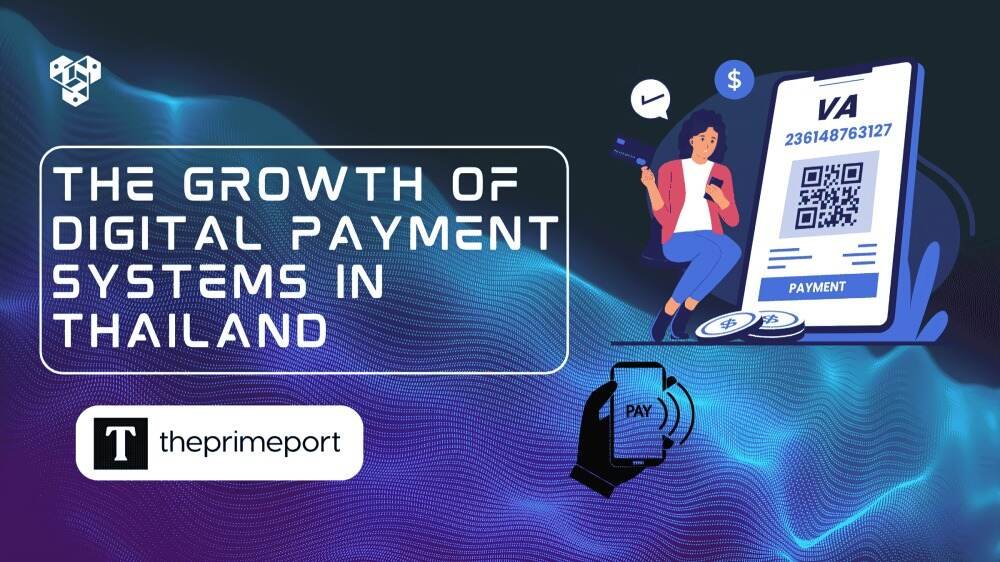Thailand, a country with an ancient cultural background, natural beauty, and friendly people, is stepping into the spotlight of digital technology. The country has thus experienced a growth of technology infrastructure through supportive government policies and private sector investments. This blog will show you about the new digital technology in Thailand, showcasing how sectors like education, healthcare, and e-commerce are being transformed.
New Digital Technology in Thailand: Overview
| Sector | Key Development | Impact |
| E-commerce | Growth of platforms like Lazada and Shopee | Enhanced consumer convenience, increasing demand for SEO |
| Education | Expansion of e-learning and edtech startups | Improved student engagement and accessibility |
| Payment Systems | Adoption of digital payment options like mobile wallets | Greater financial inclusion and transaction efficiency |
| Healthcare | Integration of telemedicine and AI in care management | More accessible healthcare, particularly in remote areas |
| Government Support | Policies for digital transformation | Incentives for businesses and improved infrastructure |
This Blog Will Show You About The New Digital Technology In Thailand: In Detail
The Rapid Rise of E-commerce in Thailand
There has been a significant increase in use of e-commerce technology in Thailand with companies like Lazada and Shopee. This change has not only been triggered by the growth of internet usage but also because consumers have embraced the use of online platforms as the best shopping option. As per the various market chronicles, e-commerce in Thailand is anticipated to scale up by 88% and touch $20+ billion by 2025 from $11billion in the year 2020.
This increase in online retail has also come with a need for businesses to employ Search Engine Optimization (SEO) techniques to increase their online presence. Currently, there are about 51 million internet users in Thailand, and therefore businesses must ensure they rank high on the search engines in order to attract their would-be customers.
Technology Integration Impacting the Thailand Education System
The utilisation of digital technologies in Thailand’s education sector has been a continuous process and has come a long way. Computer aided education has emerged for both the primary and secondary schools students as well as tertiary institutions where students get engaged in personalised interactive education.
One such effort, the Equitable Education Fund, is assisting in minimising that gap by availing devices and internet connection to all needy students. This program is meant to help the school trustee so that both; the rich and the poor can be provided with quality education.
Edtech Growth:
New edtech startups in Thailand are changing the way education is delivered. These startups are starting with things like virtual classrooms and Advanced Intelligent Platforms for Personal Learning. These platforms help students to learn at their own pace thus increasing their interest, and hence better results are achieved.
The Growth of Digital Payment Systems in Thailand

The digital payments landscape in Thailand has undergone a massive transformation in recent years. Thanks to the internet and e-commerce shifting to online transactions, mobile wallet and QR code payments are gaining popularity. Digital payments business transactions with other parties as stated by the Bank of Thailand reached 43 percent in 2024.
Thai consumers’ favourite mobile banking applications include the ones provided by Kasikornbank and Siam Commercial Bank among others. Many of these applications enable people to perform financial operations at any time and place; that is why they are popular with customers.
Government Push for Cashless Payments:
The Thai government has also played a big part towards the embracement of digital payments. By means of Thailand 4.0, the government wants to eliminate the use of cash and embrace cashless transactions because it will foster financial inclusion and also ease the business environment.
Government’s Role in Thailand’s Digital Transformation
The Thai government has been taking strategic measures to advance digital transformation in different areas to support Thailand 4.0 initiative. This strategy outlines Thailand’s vision to transform itself into a technology-based economy by promoting innovation and digitization processes throughout various sectors.
In order to encourage this shift, the government is permitting industries to pay fewer taxes and offering financial assistance for digitization. To provide the same level of connection between urban and rural regions, investments are also being made in the dissemination of the 5G network and high-speed Internet.
The government has set the goal to reach internet connection penetration at the rate of 80 % by 2025 when performance of the digital services will have been enhanced.
5G Network Rollout:
5G Thailand availability is set to begin in 2024 and will be fully implemented by 2025. This new generation will deliver enhanced internet speed, and connection quality for IoT, and smart city applications among others.
Conclusion
Undeniably, this blog will show you about the new digital technology in thailand and has recorded major progress across the various domains. From their buying and selling through the internet to changes in the medical as well as education sector and many more, the country is ready for the future digital economy. This blog has shown you about the new digital technology in Thailand, highlighting the key areas where technology is making a profound impact. Through increased investment in infrastructure, as well as carrying forward the culture of embracing the digital movement, Thailand is poised for this region’s digital powerhouse.
FAQs
Ans: Thailand 4.0 is a government drive geared at transitioning the country into more of a technology-based economy through embrace of innovation and digitalization.
Ans: The online trading industry in Thailand is continuously growing, especially with Shopee and Lazada projected to bring the market to $20 billion in 2024.
Ans: Thai healthcare promotes the positive use of AI for patient-specific treatment and enhanced diagnosis for better patient experiences and prognosis.
Ans: Mobile wallets, QR code payments, and online banking have emerged as leading modes for digital transactions which are estimated to contribute 43% of overall financial transactions in 2023.
Ans: Active measures such as the Equitable Education Fund allow Thailand to equip low-income students with digital devices and internet connections.
Also read About:
- ApkZub: Your Ultimate Guide to the Android App Hub
- Exploring Mixtvnow: Your Go-To Hub for Digital Solutions and Tech Insights










